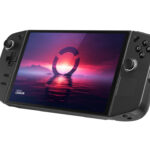
At a ceremony today in China, LG Display unveiled what it terms as the next-generation 3D display. The new 3D panel is created using FPR (film-type patterned retarder) that claims to eliminate flicker and crosstalk, a common problem found in shutter glasses 3D panels and support full HD resolution as well as bring the cost of production down by using film instead of glass substrate.
LG plans to provide FPR panels from 2011.
Press Release:
Seoul, Korea (December 15, 2010) – LG Display [NYSE: LPL, KRX: 034220], a leading innovator of TFT-LCD technology, unveiled its FPR (film-type patterned retarder, polarized glasses) 3D panel at a launch ceremony held on December 15 in Beijing, China.
Held under the theme of “opening a new 3D era that protects the eyes,” the FPR 3D panel launch ceremony brought together about 250 people, along with representatives from LCD TV companies, high-ranking officials from industry association, state-run research institutes and the retail industry.
LG Display CEO Mr. Young Soo Kwon noted in his welcoming speech, “It is a pleasure for LG Display to announce the opening of the ‘FPR 3D era’ in China which is emerging as the center of the worldwide TV market. LG Display will focus on FPR 3D products as we believe that FPR is superior in all aspects and represents genuine 3D technology better suited to consumers.”
The Chinese and global LCD TV makers plan to offer a full lineup of 3D LCD TV sets featuring
FPR panels from the beginning of 2011. The product not only delivers full HD picture quality, but also eliminates flicker and crosstalk which are problems associated with SG (shutter glasses) 3D displays. It also resolves the issue of high costs linked to the existing PR (patterned retarder) type panel by using film instead of glass substrate.
Moreover, lightweight and comfortable polarized glasses that emit no electromagnetic waves allow consumers to enjoy long hours of viewing without any discomfort in their homes.
– Next-generation 3D technology recognized by experts
Organized by LG Display and sponsored by China Video Industry Association / China Electronic News and China 3D Industry Association, the FPR 3D panel launch ceremony included a presentation given by Research Institute of TV and Electro-Acoustics under Ministry of Industry and Information Technology of China and Beijing Ophthalmology Research Institute that acknowledged the superiority of FPR technology. An analysis of the flicker effect that occurs during 3D viewing showed the FPR panel is less tiring on the eyes compared to the SG type.
Dr. James Sheedy, director of Optometry Research Center at Pacific University in the US, delivered a lecture titled “Vision and 3D Display” at the event. Dr. Sheedy noted, “Problems with the SG type panel included the weight of the glasses, power consumption and reduced brightness. However, LG Display’s FPR 3D panel has no flickering, produces minimal cross talk and delivers a bright screen. Also, the glasses can be made with curved lenses, like regular glasses, so it is superior in terms of protecting eyesight.”
Mr. Li Jun Tao, Vice President of Gome Group, China’s leading retail chain, said, “As several TVs are displayed together at the stores, there have been problems with the SG type 3D TV sets such as synchronization signal error, interruption and discharged batteries of glasses.” Vice President of Suning, Mr. Wang Zhe, said, “The launch of FPR which resolves these technical issues is expected to boost sales of 3D TV.”
– Conquering the 3D market through global alliance
Among those present at the launch ceremony were top executives from China’s six largest LCD TV makers, namely Skyworth, Konka, Hisense, Haier, Changhong and TCL, as well as global LCD TV companies LG Electronics, Vizio and Toshiba. They agreed to cooperate for FPR 3D promotion based on shared recognition of its outstanding features.
Mr.Yang Dong Wen, Vice President of China’s LCD TV market leader Skyworth, said, “The launch of FPR 3D TV products, which are clearly different from the existing 3D TVs, should expand China’s 3D LCD market to over 8 million units next year.”





Leave a Reply